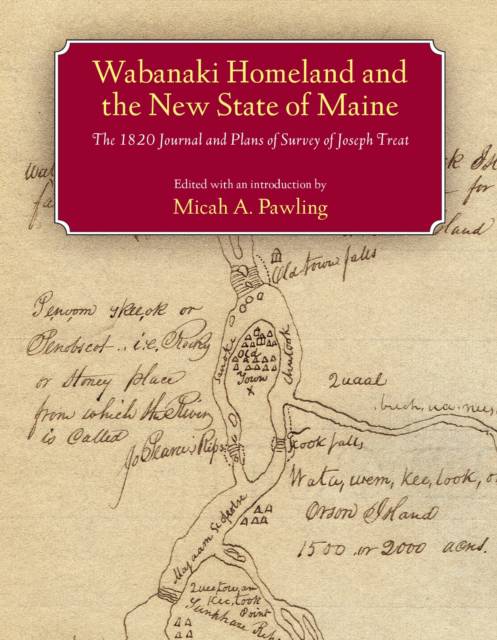
- Afhalen na 1 uur in een winkel met voorraad
- Gratis thuislevering in België vanaf € 30
- Ruim aanbod met 7 miljoen producten
- Afhalen na 1 uur in een winkel met voorraad
- Gratis thuislevering in België vanaf € 30
- Ruim aanbod met 7 miljoen producten
Wabanaki Homeland and the New State of Maine
The 1820 Journal and Plans of Survey of Joseph Treat
€ 37,95
+ 75 punten
Omschrijving
In late September 1820, Governor William King of the newly founded state of Maine dispatched Major Joseph Treat to survey public lands on the Penobscot and Saint John Rivers. This volume includes a transcription of Treat's journal, and records pertaining to the 1820 treaty between the Penobscot Nation and the governing authorities of Maine.
Specificaties
Betrokkenen
- Uitgeverij:
Inhoud
- Aantal bladzijden:
- 256
- Reeks:
Eigenschappen
- Productcode (EAN):
- 9781558495784
- Verschijningsdatum:
- 9/05/2007
- Uitvoering:
- Hardcover
- Gewicht:
- 765 g

Alleen bij Standaard Boekhandel
+ 75 punten op je klantenkaart van Standaard Boekhandel
Beoordelingen
We publiceren alleen reviews die voldoen aan de voorwaarden voor reviews. Bekijk onze voorwaarden voor reviews.








